Susumu Hirasawa is a Japanese musician and composer. He is well known for his work for the films of director Satoshi Kon and the animated adaptations of the Berserk manga series, alongside his work as a solo artist.

Monty Python's Previous Record is the third album by Monty Python. Released in 1972, it marked the group's first collaborations with regular sound engineer Andre Jacquemin as well as musician Neil Innes, who had previously appeared with future members of the Python team on Do Not Adjust Your Set. The album contains many sketches from the third series of Flying Circus, one from the second as well as an abridged version of "The Tale of Happy Valley" from the second German show. The album was released midway through the broadcast of Series 3, whose sketches featured on the album were all from its first half, with the exception of "Dennis Moore" which aired a month later and therefore made its debut here. The oldest sketch on the album, Eric Idle's "Radio Quiz Game", dates back to I'm Sorry, I'll Read That Again, where it was performed by Graeme Garden – Idle having subsequently performed the sketch himself on two editions of Do Not Adjust Your Set. The rest of the material was specially written for the album.
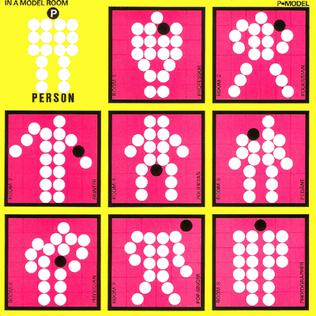
In a Model Room is the debut album of Japanese band P-Model. It was an electronic pop album, released in 1979 under the label, Warner Bros.
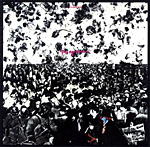
Potpourri is the third album of Japanese band P-Model.

Detonator Orgun is a 1991 Japanese original video animation series by AIC and Artmic, directed by Masami Ōbari with character designs by Kia Asamiya.
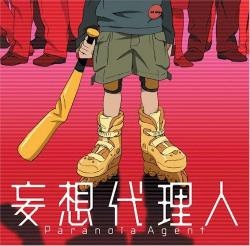
Paranoia Agent Original Soundtrack is the soundtrack to the TV series Paranoia Agent composed by Susumu Hirasawa. The CDs catalog number is #5274, and is labeled by Geneon Entertainment, the same company that originally held the English language rights to the anime series in the US.
In the music industry, a reissue is the release of an album or single which has been released at least once before, sometimes with alterations or additions.
Hikaru Kotobuki is a Japanese musician who worked with artists like Susumu Hirasawa (P-Model), and Jun Togawa.
Shun may refer to one of the following:

AIP Records is a record label that was started by Greg Shaw's Bomp! Records in 1983 to continue the Pebbles series. AIP stands for "Archive International Productions". The first 10 volumes in the Pebbles series had been released by BFD Records of Kookaburra, Australia in 1979–1980 and have been kept in print by AIP for many years. Including those in the companion Highs in the Mid-Sixties series – which concentrated on American regional music scenes – there are over 50 LPs covering some 800 obscure, mostly American "Original Punk Rock" songs recorded in the mid-1960s – primarily known today as the garage rock and psychedelic rock genres – that were previously known only to a handful of collectors.
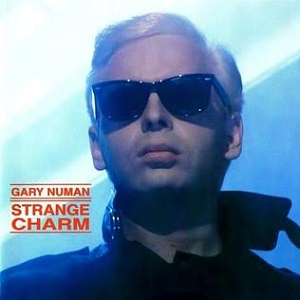
Strange Charm is the eighth solo studio album by the English musician Gary Numan, originally released in October 1986, it was Numan's third release on his self-owned Numa Records label. The album was not released in the United States until 1999 when it was issued in a digitally remastered form with five bonus tracks by Cleopatra Records. In the same year it was also reissued with bonus tracks in the United Kingdom by Eagle Records.
Budget albums were low-priced vinyl LPs of popular and classical music released during the 1950s to 1970s consisting either of previously released material or material recorded especially for the line. Prices ranged from as low as 59 U.S. cents to $2.98. In the UK Pickwick Records' Top of the Pops record series, which operated between 1968 and 1985, was the most successful budget album range.

Water in Time and Space is Susumu Hirasawa's first solo album.
Shun was a Japanese experimental sampling unit created by Susumu Hirasawa. The group was active from 1983 to 1987, although it was never officially ended, and was revived by Hirasawa in 1994 to 1996.
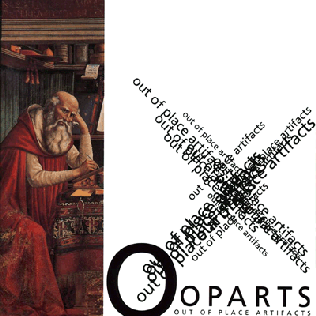
OOPARTS is a compilation album by the Japanese experimental music group Shun, released on DIW Records in 1994. The title of the album references out-of-place artifacts.

P-Model made a demo in 1979 to obtain a recording contract; it features 2 songs, each one being composed by Susumu Hirasawa and Yasumi Tanaka, P-Model's main songwriters at the time. The band negotiated with 8 record labels, in the end, they chose to sign a contract with Warner-Pioneer, all P-MODEL releases from 1979 to 1981 were handled by Warner-Pioneer, including In A Model Room, the album where both of these songs were included. Hirasawa also gave a copy to Plastics keyboardist Masahide Sakuma after a Plastics show after asking him to produce In a Model Room, which Sakuma accepted. Due to the demo nature of the recordings, they are rawer and punkier than the studio recorded versions. The demo was released by Hirasawa's SYUN label in 1994 as a bonus for those who bought both OOPARTS and Pause, the first release of the SYUN label. The demo was remastered by Hirasawa and re-released on the Ashu-on [Sound Subspecies] in the solar system box set on 10 May 2002; it was put on CD 13, with SCUBA RECYCLE, Air on the Wiring and the In a Model Room outtake WHITE SHOES.

Archetype | 1989–1995 Polydor years of Hirasawa is Susumu Hirasawa's fourth compilation album.

Fune is the tenth studio album by P-Model and the first by its "revised" lineup.
Mandrake (マンドレイク) was a Japanese progressive rock band formed in Tokyo in 1973. One of the few Japanese groups active during the genre's heyday, they distinguished themselves by developing a style of their own, harder than the jazz fusion hybrid most other Japanese groups played.
The following is the solo discography of Susumu Hirasawa, Japanese musician and composer. Since the beginning of his professional activities in 1973, Hirasawa has produced a prolific number of recordings, with a constant stream of releases since 1978, under his own name as well as multiple bands and side projects. See Mandrake, P-Model and Shun (band) for more output.












